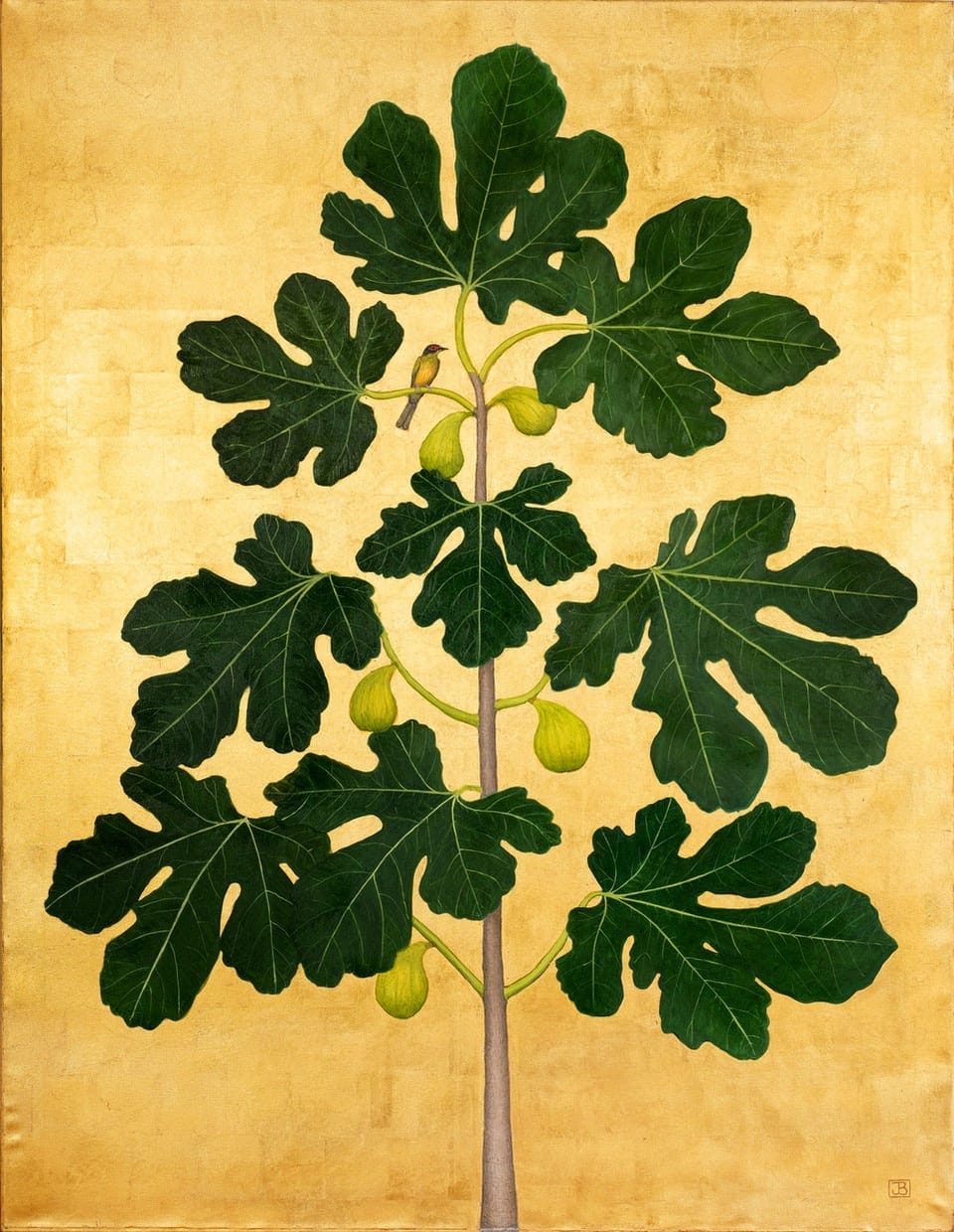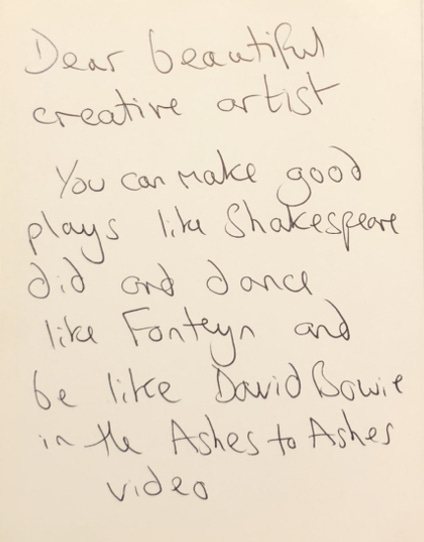The Nest at The Top of The Fig Tree
I would rather have a rotten harvest than a chest full of dead bird.
Since the publication of The Bell Jar (1963), Sylvia Plath’s fig tree analogy has remained ironically evergreen in the cultural consciousness. In its modishness, it has been divorced from context. ‘My fig tree’ is shorthand for I have so many choices and so little time. The analogy is not as good as its reputation would have you believe. It has also been widely misunderstood. I offer the Ambition Bird to anyone who, after reading on a little way, still feels like they are sitting hopelessly in a fig tree’s crotch being sick into their empty hands.
“I saw my life branching out before me like the green fig tree in the story. From the tip of every branch, like a fat purple fig, a wonderful future beckoned and winked. One fig was a husband and a happy home and children, and another fig was a famous poet and another fig was a brilliant professor, and another fig was Ee Gee, the amazing editor, and another fig was Europe and Africa and South America, and another fig was Constantin and Socrates and Attila and a pack of other lovers with queer names and offbeat professions, and another fig was an Olympic lady crew champion, and beyond and above these figs were many more figs I couldn't quite make out. I saw myself sitting in the crotch of this fig tree, starving to death, just because I couldn't make up my mind which of the figs I would choose. I wanted each and every one of them, but choosing one meant losing all the rest, and, as I sat there, unable to decide, the figs began to wrinkle and go black, and, one by one, they plopped to the ground at my feet.” - The Bell Jar.
The figs hang ripe: ready, ornamental. There is no discipline or duration between Esther Greenwood and her futures; or between you and your many viable options. All that awkward in-between can be bypassed with an intention and an arm's length. In the world of this analogy, we are entitled to happinesses.
Agonize too long and some options may fall away, but the tree is apart from you and the rotten figs won’t contaminate. They enrich the soil. If you grasp one you have a sweet seedpod, carrying within it the potential for hundreds of other trees. Empty-handed you can rest easy knowing that fig trees are perennial.
It is easy to discount this common sense and turn your head towards the roots when you have depressive anxiety like Esther Greenwood, or when you haven’t read The Bell Jar, and don’t know that a few pages later during a restaurant scene she as good as unearths the fig tree:
"I don't know what I ate, but I felt immensely better after the first mouthful. It occurred to me that my vision of the fig tree and all the fat figs that withered and fell to earth might well have arisen from the profound void of an empty stomach."
Esther has a natural human wariness of the unknown, but she’s mainly a depressed girl who forgets to eat, and any fig will satiate that issue. The Bell Jar is not a novel about which of the equally correct futures its protagonist should pick. It’s about regaining an appetite for choice.
Anne Sexton is Plath’s brunette reflection, another form-altering American poetess who agonised over the future’s pluralities and settled on suicide. The fig tree image is like a tracing of Sexton’s The Ambition Bird drawn with a thick nibbed marker and a non-dominant hand. The line drawing beneath is bleak. You cannot propagate a dead bird.
All night dark wings flopping in my heart. Each an ambition bird. The bird wants to be dropped from a high place like Tallahatchie Bridge. He wants to light a kitchen match and immolate himself. He wants to fly into the hand of Michelangelo and come out painted on a ceiling. He wants to pierce the hornet’s nest and come out with a long godhead. He wants to take bread and wine and bring forth a man happily floating in the Caribbean. He wants to be pressed out like a key so he can unlock the Magi. He wants to take leave among strangers passing out bits of his heart like hors d’oeuvres. He wants to die changing his clothes and bolt for the sun like a diamond. He wants, I want. Dear God, wouldn’t it be good enough just to drink cocoa? I must get a new bird and a new immortality box. There is folly enough inside this one. (lines 16-40)
The Ambition Bird is neither ahead nor apart but flails inside your chest cavity. This is where its corpse will remain if it fulfils the death drive. Each bird is a violent human frequency as opposed to an emblem of ripe American success. Its wants are perverse and instinctual, thrumming moods that the ribs’ birdcage has shielded from societal erosion: the brightest light, the hardest substance, the most painful death.
That the dark wings are ‘Each an ambition bird’ implies numerous outcomes, but, like the severed wings this reading mistakes a part for the whole. ‘He’, ‘he’, ‘he’, ‘he’, ‘he’, ‘he’ are not multiple futures as only one Ambition Bird can be caged in the box. When ‘He wants’ overpowers ‘I want' the violent impulse is embodied. An immortality box is a realer void than an empty stomach.
Plath hides hope with dearth. Sexton lets us believe that our reigning violence is a flock of free will; the illusion is dispelled when the Ambition Bird tests its flight and plummets. It is easier to have a future that rots on the ground than a chest full of dead bird. All you can do then is taxidermy the carcass into poems that line its coffin.



